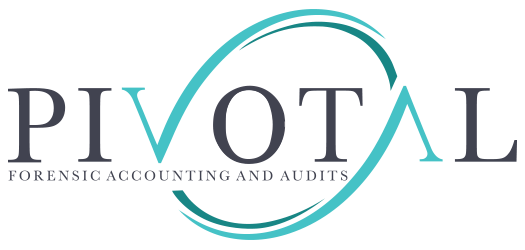Understanding Self-Dealing and the Weight of Fiduciary Duty
In the world of finance, governance, and elder care, few ethical and legal violations are as serious—or as misunderstood—as self-dealing. Whether you’re a company executive, a public official, a board member of a nonprofit, a trustee, or even someone granted power of attorney for a loved one, your actions must meet a high standard: the fiduciary duty to act in the best interests of others, not yourself.
When fiduciary responsibility is breached through self-dealing, the consequences can be severe—civil lawsuits, removal from office, reputational ruin, and even criminal charges.
What is Self-Dealing?
Self-dealing occurs when a person in a fiduciary position uses that role to benefit personally at the expense of the person or entity they’re supposed to serve. It’s not just unethical; in many cases, it’s illegal.
Some examples include:
- A nonprofit board member steering contracts to their own business.
- A government official approving public funds for a company they secretly own.
- A corporate officer using insider information to gain personal financial advantage.
- A power of attorney agent liquidating a parent’s 401(k) to fund personal purchases.
- An estate executor selling assets to themselves at a discount without disclosure.
These acts often share one theme: using access and control for private gain, often under the radar of the people they are supposed to protect.
The Core of Fiduciary Duty
When you hold a fiduciary role, you have legal and ethical obligations to:
- Act Loyally – Always prioritize the interests of those you serve above your own.
- Act Prudently – Make decisions with care, diligence, and informed judgment.
- Avoid Conflicts of Interest – Refrain from situations where your personal interest could impair your objectivity.
- Disclose Honestly – Be transparent with financial and material decisions that affect the principal (individual or institution).
These duties are not optional, and they don’t allow for “gray areas” when it comes to personal benefit.
Common Contexts Where Self-Dealing Arises
1. In Nonprofits and Publicly Funded Organizations
Board members and officers are entrusted to use funds to fulfill a charitable mission. Self-dealing here often involves contracts, compensation, or benefits that enrich insiders rather than advance public good.
Red flag: A nonprofit pays a board member’s relative for consulting services—without disclosure or competitive bidding.
2. In Government Roles
Public officials are fiduciaries to taxpayers. When decisions about budgets, permits, or contracts are influenced by personal investments or relationships, it can violate public trust.
Red flag: A city official signs a lease agreement with a developer—only to later be discovered as a hidden stakeholder in the project.
3. In Corporate Leadership
Corporate directors and officers must place shareholder interests above personal gain. Insider trading, unapproved bonuses, and sweetheart deals with personal businesses are classic forms of self-dealing.
Red flag: A CEO shifts intellectual property from the company into a privately held entity in which they have controlling interest.
4. In Family and Elder Care (Power of Attorney)
Holding a power of attorney, especially for an elderly parent with significant assets, is a serious fiduciary position. Misuse of those funds—even if rationalized as “inheritance in advance”—can be criminal.
Red flag: A child with power of attorney sells a parent’s home and uses the proceeds for personal debts rather than long-term care needs.
5. As an Estate Executor
An executor must act in the best interest of all beneficiaries. They cannot favor themselves in distributing property, buying estate assets below market value, or failing to account for transactions.
Red flag: An executor transfers a valuable asset to themselves without a proper appraisal or consent from other heirs.
Consequences of Self-Dealing
Depending on the context and jurisdiction, consequences may include:
- Civil lawsuits for breach of fiduciary duty.
- Personal financial liability for losses caused by self-dealing.
- Removal from position, including disqualification from future fiduciary roles.
- Criminal charges, including fraud, embezzlement, or elder abuse.
- IRS penalties, especially for self-dealing in nonprofits under IRC §4941.
How to Avoid Self-Dealing
- Understand your role: Know the legal expectations tied to your fiduciary position.
- Maintain transparency: Document everything and communicate clearly with stakeholders.
- Use third-party validation: Get independent appraisals, audits, or legal opinions where appropriate.
- Recuse yourself from decisions where you or your family may stand to benefit.
- Create checks and balances: Especially when managing someone else’s money or assets.
Final Thought: Duty Above All
Serving in a fiduciary role is an honor—and a burden. It requires moral clarity, legal compliance, and emotional restraint, particularly when dealing with family or familiar institutions. Self-dealing not only violates law; it destroys trust.
If you suspect someone is engaged in self-dealing—or if you’re unsure whether your own actions could cross the line—consult a forensic accountant or legal advisor immediately. In fiduciary relationships, even the appearance of impropriety can have devastating ripple effects.


